More than 6.4 million hectares of forest were lost to deforestation last year, a rate much higher than three years ago, when 140 countries vowed to end deforestation by the end of the decade. That is, according to the 2024 Forest Declaration Assessment, which reports that the rate of forest degradation worldwide is immense: “globally, an area twice the size of Germany fell from a higher to a lower ecological integrity class in 2022.”
The uptake is driven to a large degree by political changes in Indonesia and Bolivia and surging demand for beef, soy, palm oil, paper, and nickel, now pushing Asia off track from meeting key deforestation targets. And that does not include more than 62.6 million hectares of degraded forest lost to infrastructure, forest fires, and logging:
“The bottom line is that, globally, deforestation has gotten worse, not better, since the beginning of the decade,” according to Ivan Palmegiani, the report’s lead author. “We’re only six years away from a critical global deadline to end deforestation, and forests continue to be chopped down, degraded, and set ablaze at alarming rates.”
“Righting the course is possible if all countries prioritise it, especially if industrialised countries seriously reconsider their excessive consumption levels and support forest countries.”
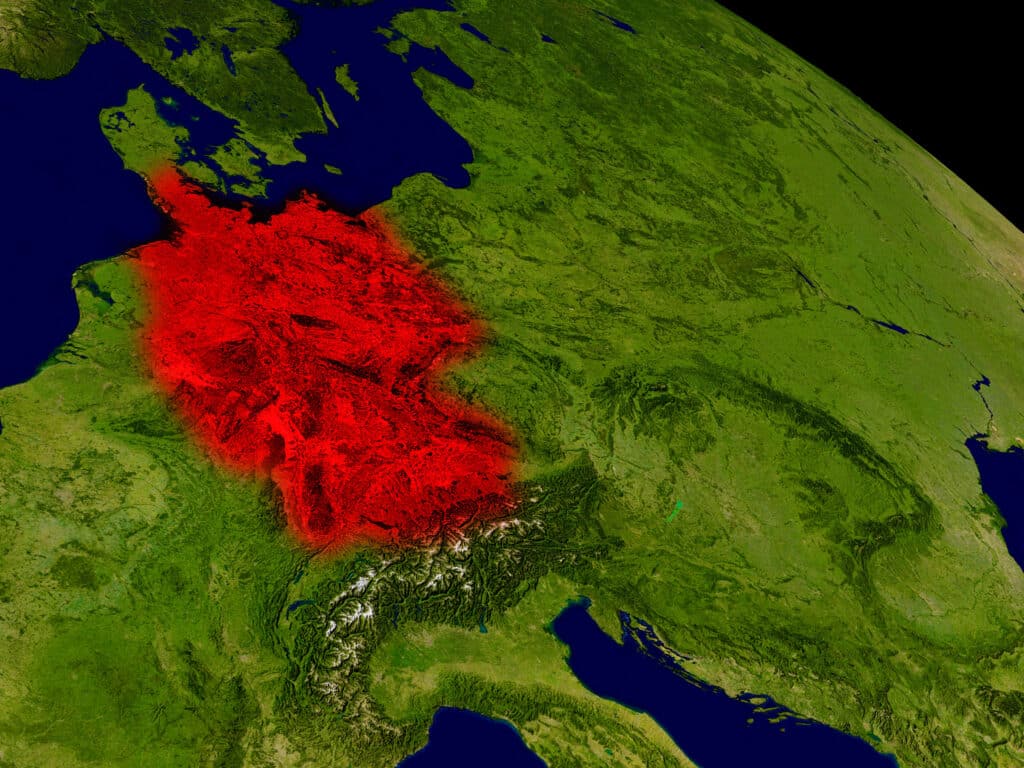
A lack of transparency and monitoring is hindering progress.
The assessment is supported by data provided by BirdLife International, the Brazilian Restoration and Reforestation Observatory, CTrees, Global Forest Watch, the Joint Research Centre, and Restor – with the report funded by the Bezos Earth Fund and Climate and Land Use Alliance.
“A continued lack of transparency and inconsistent monitoring of restoration efforts hinder progress tracking,” according to the report’s executive summary, revealing that “without accurate, up-to-date data, we cannot get a complete picture of total global progress on restoration.”
According to Erin D. Maston, one of the report’s co-authors, “When the right conditions are in place, countries see major progress. However, if economic or political conditions change, forest loss roars back. “We’re seeing this effect in the spiking deforestation in Indonesia and Bolivia.
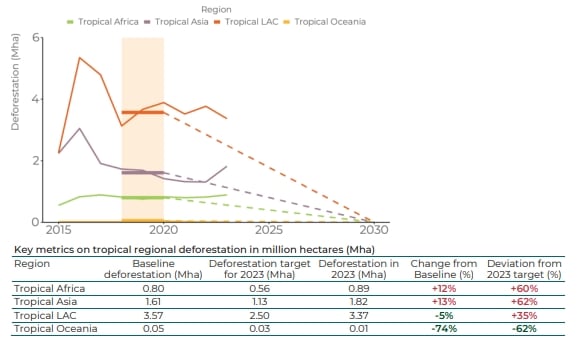
Deforestation levels are 50% higher than needed to reach zero
Using 2018 to 2020 as a baseline, the report claims that last year’s deforestation rates were 50% higher than the required level to reach zero: “Indonesia’s deforestation alone spiked by 57% in one year. This was in large part attributable to surging global demand for things like paper and mined metals like nickel,” Ms Maston said.
“But it’s also clear that the Indonesian government took its foot off the gas. It experienced the steepest drop in deforestation of any tropical country from 2015-17 and 2020-22, so we have to hope this setback is only temporary.”
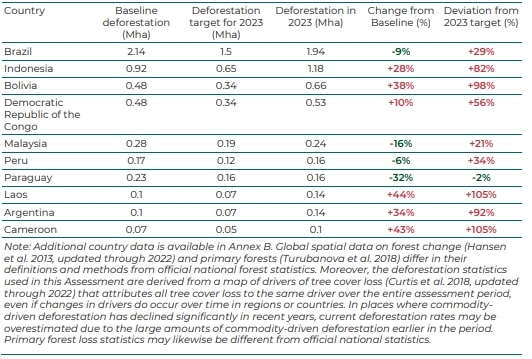
“Brazil gives us an example of positive progress [in the Amazon], but deforestation in the Cerrado [tropical savanna] increased 68% year over year,” she said, with Wood Central reporting that large parts of the Amazon are now “close to the point of no return” thanks to severe drought and climate-induced forest fires. For what it’s worth, the assessment found that 45 million hectares of Amazon have burned in the past five years alone.
Australia is leading the way in drastically reducing deforestation.
“In 2023, the countries with the most significant reductions in deforestation from baseline levels were Australia, Colombia, Vietnam, Venezuela, and Paraguay,” the report said, with Australia’s rate of loss more than 82% below the baseline and a 75% deviation from the target.
“These (five) countries are the only ones that remain on track to eliminate deforestation by 2030,” with several other countries, including Papua New Guinea, the United States, Malaysia, Guatemala and Brazil, also amongst the top 10 countries for reducing forest loss.
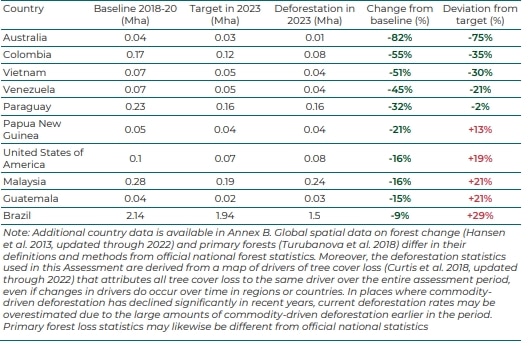
“Brazil and Malaysia – two countries that failed to meet their 2023 Assessment-identified deforestation target and are among the top ten most deforested countries,” the report said. “Both countries had high deforestation and were off track while also being among the countries that have reduced deforestation the most from their baseline.
“These countries have reduced deforestation 9% and 16% below baseline levels – both signal a positive trend, but they aren’t happening fast enough to halt deforestation by 2030.”
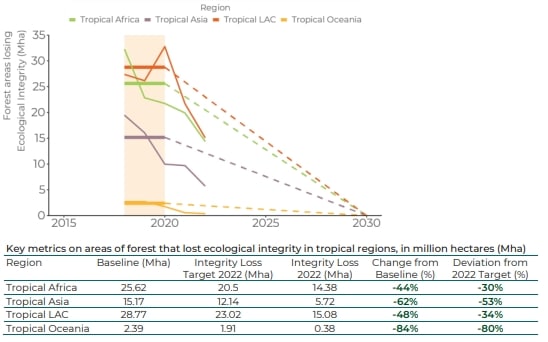
Outside the tropics, the researchers found that temperate forests in North America and Latin America recorded the greatest absolute levels of deforestation – with the report also pushing to increase funding for forest protection, strengthen the land rights of Indigenous people and reduce demand for commodities produced via deforestation – aided by the European Union’s landmark deforestation regulation (the EUDR).
Authors slam delay to European Union’s Deforestation Regulation.
Last week, Wood Central revealed that the European Commission will now push to delay the EUDR by 12 months, following mounting calls by global governments – including the United States, China and India – to delay the world’s most ambitious deforestation regulation.
If approved by the European Parliament and the Council, the law will take effect on 30 December 2025 for large companies and 30 June 2026 for micro- and small enterprises – publishing updated guidance to help stakeholders navigate changes to the regulations.
“This pushback is largely driven by political pressures, and it’s a shame. We can’t rely on voluntary efforts – they have made very little progress over the last decade,” Ms Matson said.
- To learn why Australia now leads the world in reducing deforestation and promoting reforestation, click here for Wood Central’s special feature.






